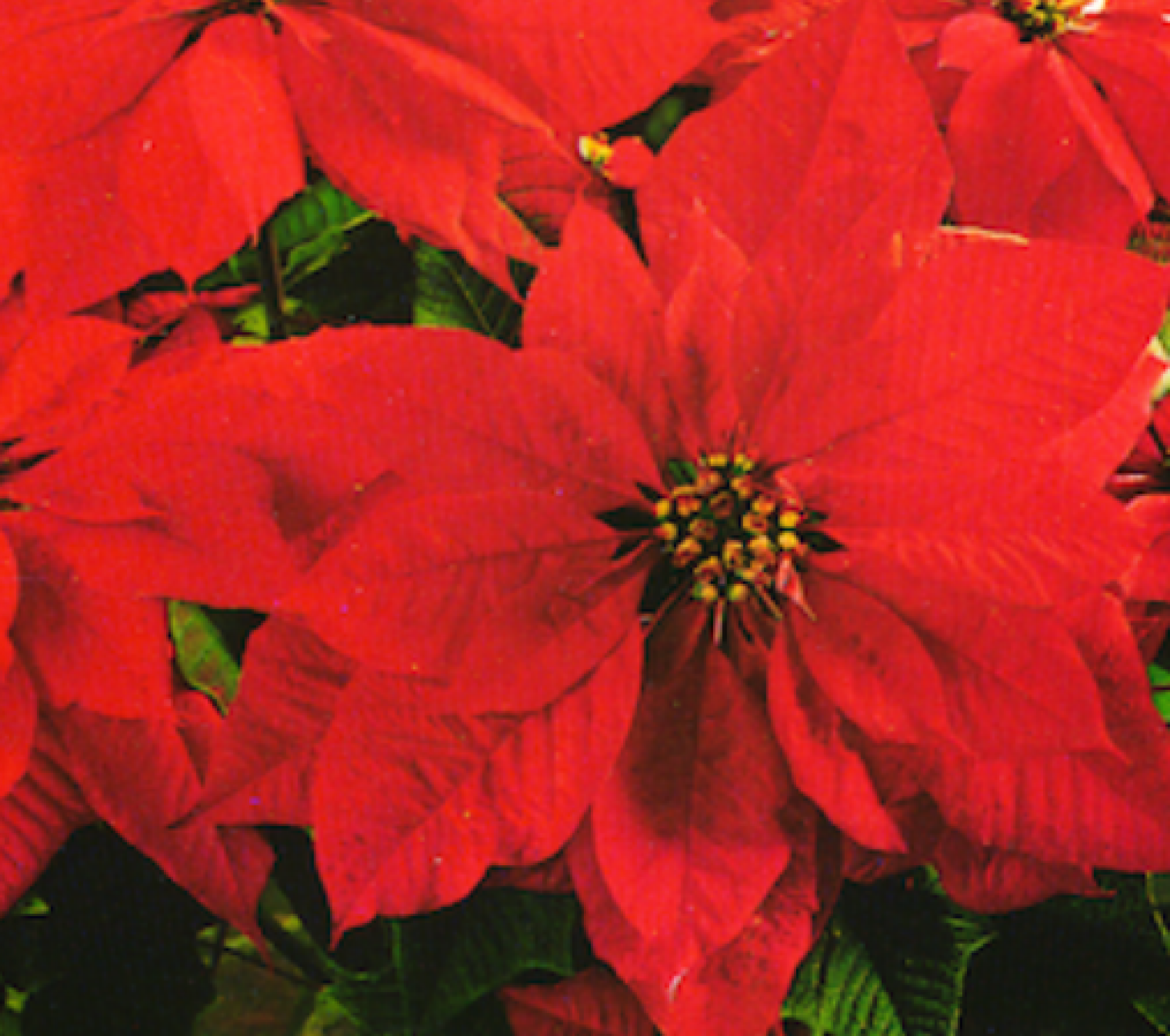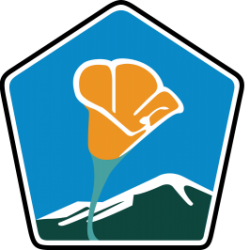Audio Transcript
Nearly everyone is familiar with the red and green flower that adorns many homes during the holiday season: the Poinsettia. But did you ever stop to wonder where the Poinsettia came from? Or why it became so popular in the first place? You may be surprised to learn that Southern California has played a significant role in the history of the Christmas flower. Native to Mexico, the Aztecs used the Poinsettia to make dyes, fever medicine, and to symbolize purity as far back as the fourteenth century. The Poinsettia was first brought to the United States in the 1820s by Joel Poinsett, the first U.S. ambassador to Mexico. Nearly 100 years later the Poinsettia would become a commercial success thanks to the Ecke family of Encinitas, California. Albert and Henrietta Ecke immigrated to the U.S. from Germany in 1902 with their four children. Albert, a former school teacher and sanitarium owner noticed the local poinsettia plant and began growing and selling it in Los Angeles in 1909. In 1923 Albert’s son, Paul Ecke Sr., purchased forty acres of land and established the family farm and business as the Paul Ecke Ranch.
In 1963, Paul Ecke, Jr. took over as operations manager of the ranch and moved production into the more stable environment of indoor greenhouses. Paul Jr. also began heavily marketing the Poinsettia as a Christmas flower. Part of this marketing strategy included sending Poinsettias to talk shows for display in the background. Ecke Poinsettias have been seen on “The Tonight Show Starring Johnny Carson,” “The Tonight Show with Jay Leno,” and many others.
In 1991 Paul Jr’s son, Paul Ecke III, became CEO of the Ecke Ranch. After a graduate student published the Ecke’s secret grafting technique, global competition began to build causing Ecke III to move production to low-cost Guatemala, opening 1.2 million square feet of greenhouses and packing facilities. Paul Ecke III sold the Ranch in 2012. Poinsettias account for nearly twenty-five percent of all potted plant sales in the U.S., bringing in $144 million a year. Thanks in no small part to the Paul Ecke Ranch, California remains the top producer of Poinsettias in the U.S., making Poinsettia growth and sales a significant part of California’s economy.
Podcast Transcript
Vincent: Welcome to the podcast of The Poinsettia and the Promoter, the hidden history of the poinsettia in Southern California. My name is Vincent
Melissa: my name is Melissa
Vincent: we’re going to talk to you about the special collections archive at CSUSM, and why we chose this topic for our digital project. Mellissa and I have been working on the Ecke collection since October 2017. The collection was donated to the history department in 2013 by Paul Ecke III and contains over 600 boxes of material. Records in the collection include: business records, marketing and publicity material, research material, trade magazines, photographs and slides, artifacts, maps and family papers. Melissa and I have been processing material that goes back to the 1920s, we’ve been organizing the material, putting it into a finding aid and digitizing the photographs and slides to make the research process more efficient. While processing we came across documents that showed the impact World War II had on the flower growing industry especially in California. Japanese-Americans owned and operated many of the farms in California. We found correspondence that showed the impact Japanese internment had on the growing industry.
Melissa: We found information regarding the rubber shortage and gasoline and oil rationing during the war. If you’re curious as to how poinsettias relate to a rubber shortage, please check out the World War II section of our digital project. In our project you can also explore the history of the poinsettia and the Ecke family, and the impact they had in North county, this includes the Magdalena-Ecke Family YMCA in Encinitas, the Paul Ecke Central Elementary School and the flower fields in Carlsbad. Furthermore, they sold the land that would become LEGOLAND, and the Carlsbad premium outlets.
Vincent: Thanks for listening to the Poinsettia and the Promoter podcast, and we hope you enjoy our project.

